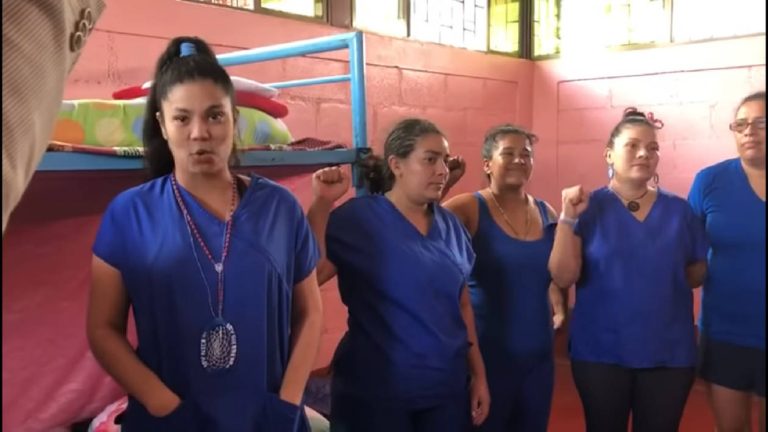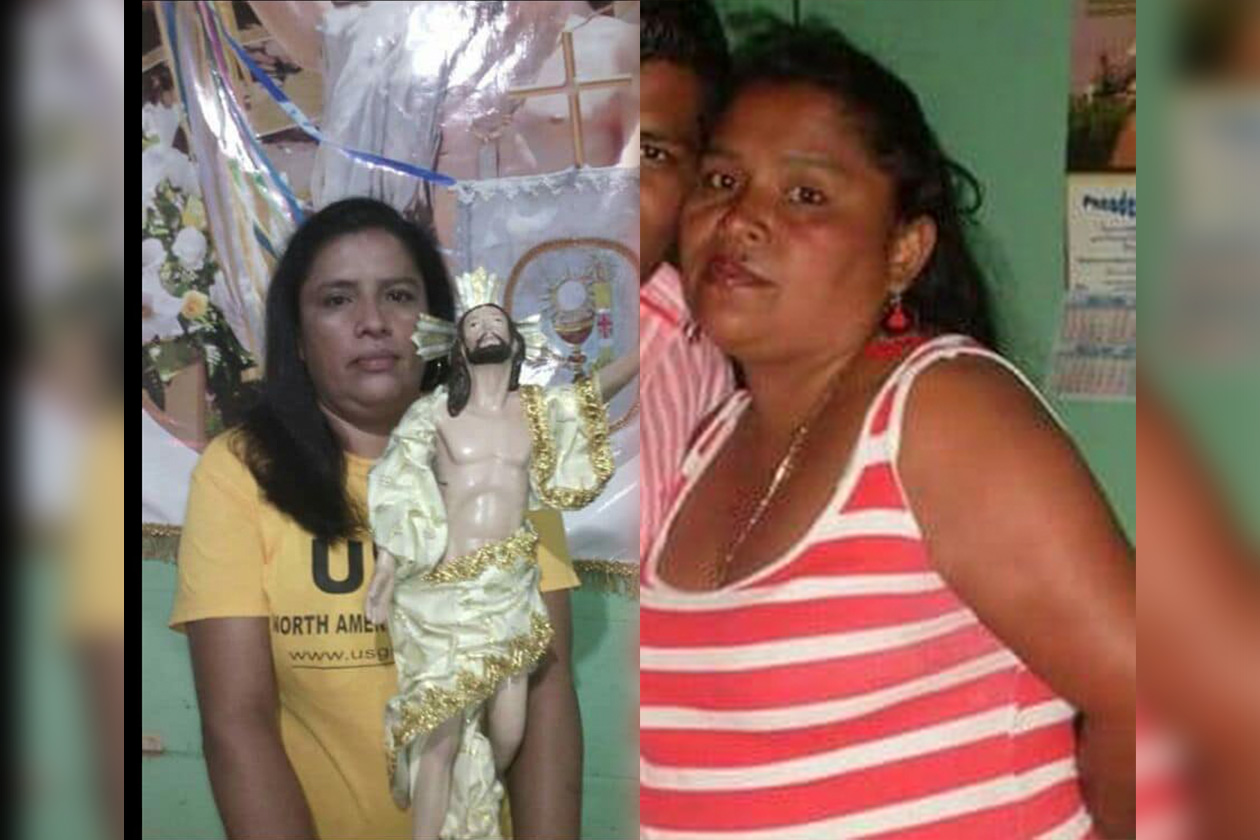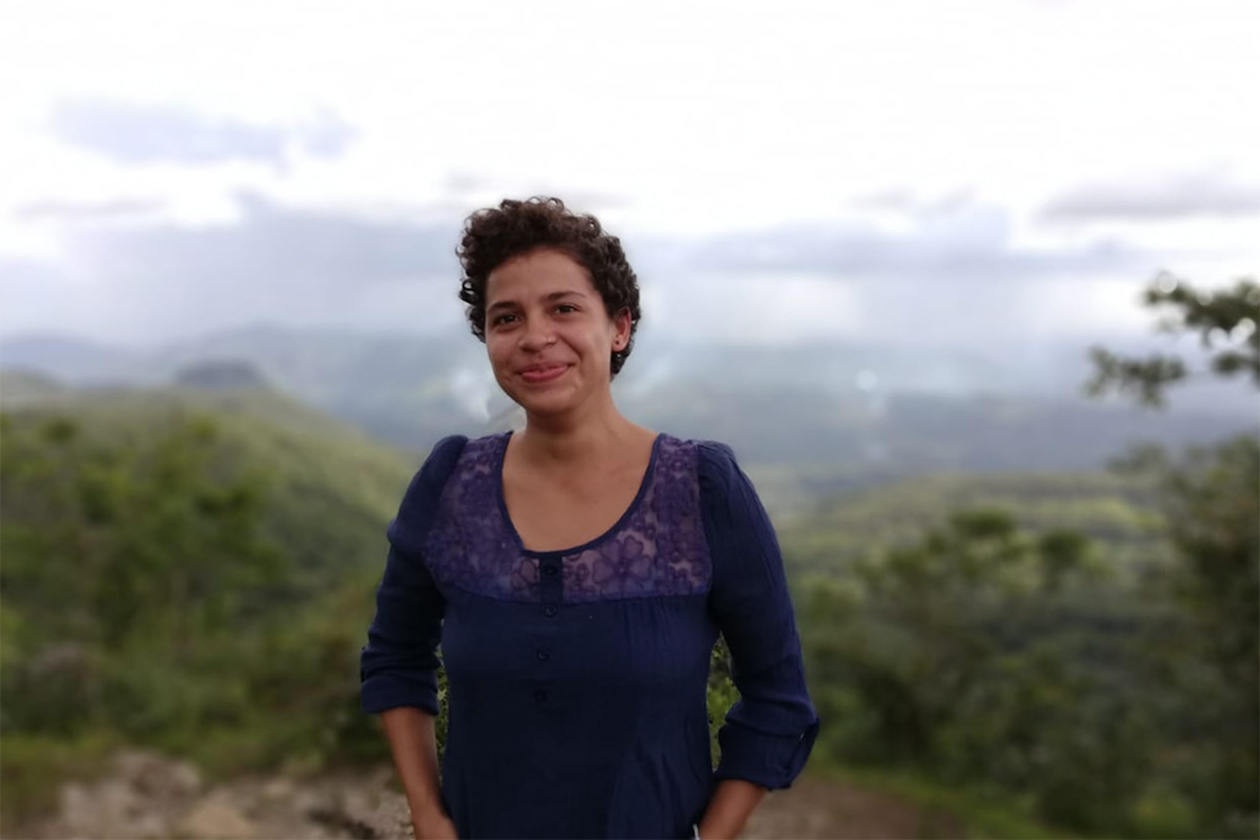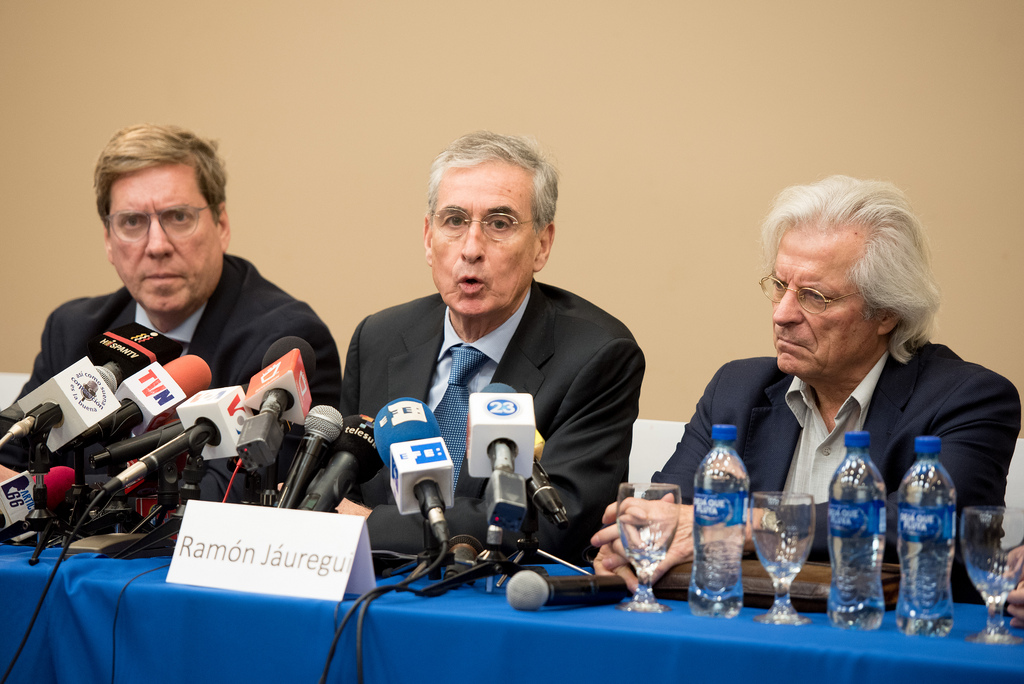27 de enero 2019

Children of Exile: The Births “Sowing Hope” in the Camp of Nicaraguan Farmers

PUBLICIDAD 1M
PUBLICIDAD 4D
PUBLICIDAD 5D
“We will not back down for anything,” said Irlanda Jerez in a video released by MEP Ana Gomes, where she shows the cells of the prisoners.

A group of female political prisoners of the Ortega-Murillo dictatorship has promised resistance from the “La Esperanza” in videos that became viral.
A group of female political prisoners of the Ortega-Murillo dictatorship has promised resistance from the “La Esperanza” (Hope) women’s prison, where some of them have already been convicted and others, like Irlanda Jerez, have been waiting for a hearing for seven months.
“We are not going to negotiate with the blood of people who have been killed. The only way out for Daniel Ortega and Rosario Murillo is a jail,” said the dentist and merchant in a video released by Ana Gomes, member of the European Parliament (MEP).

Olesia Munoz (left), Tania Munoz (right): courtesy photo / Niu
The videos were shared via YouTube and Tweeter on Saturday afternoon by the MEP Gomes, who together with a mission from the European Union verified the conditions of the political prisoners. Irlanda Jerez, Amaya Coppens, Cindy Castillo and the sisters Olesia and Tania Munoz accompanied by other defendants, told the parliamentarians about the situation they live in La Esperanza and explained the judicial processes they have faced.
“They accuse me of stealing, extorting, and falsifying documents. I have only raised my voice and my banner. (You) will know my history. Before I started in this cause, I have always fought for human rights and for women. I am here with ten women together and it is a pleasure to have you here,” said Jerez in the video that shows cell to which the prisoners have been confined.
Jerez told the mission how she was kidnapped, on July 18 in Managua, when the van in which she was travelling was intercepted by police and paramilitaries. Afterwards, she was taken to the Directorate of Judicial Assistance (El Chipote), where she spent 48 hours. “They criminalized me terribly, they did not take me food, they gave me drugged water, and I was taken here to this prison at night on July 20th,” narrated Jerez firmly.
In another of the videos released, Olesia Munoz—who remains confined with her sister Tania Munoz in the same cell with Irlanda Jerez—expressed that they are “resisting” from prison.
“The blood of our heroes cannot be forgotten,” said Munoz. Addressing Nicaraguans outside of prison she yelled: “Struggle until the end, because we are doing it from prison. Long live a Free Nicaragua!” Munoz, also known for her soprano voice that in El Chipote surprised several prisoners who, when released, narrated that in the prison cells an “angelical” woman was heard singing songs of “La Purisima” (Immaculate Conception) and Ave Maria.

Amaya Coppens Zamora is 24 years old and Daniel Ortega’s regime is now accusing her of being a terrorist. Courtesy.
The parliamentarians also visited the cell where another fifteen female political prisoners are, mostly university students and other young women. In another video released by the MEP Gomes, appear the students Amaya Coppens—who holds Belgian and Nicaraguan citizenships–, Yaritza Mairena, Patricia Sanchez, Cindy Castillo and Solange Centeno.
Amaya Coppens spoke in French to one of the Members of the European Parliament who asked about wounds on her legs. She explained that due to poor circulation the skin in her legs turns bluish.
Javier Nart, Member of the European Parliament, said at the end of the press conference they gave at the conclusion of their three-day visit to the country, that Coppens had refused to adhere to a special status due to her Belgian citizenship. “I am not leaving here until all my comrades are released,” stated the young woman to the European mission that arrived on January 24.
The prisoners told the MEPs that the guards do not allow them to hang up their clothes, but they must hang them on the edge of their bunks, which has caused vaginal infections and other diseases.
“There are fifteen political prisoners here and there is a lady who has lupus and her treatment has never been applied,” the prisoners said.
At the end of the visit to the La Esperanza Penitentiary System, the political prisoners said goodbye to the diplomats singing the National Anthem. Their message generated a lot of impact on social networks, because it is the first time since the political crisis began in Nicaragua that the conditions of those detained by the dictatorship was shown publically.
The commission of European MPs ruled out on Saturday that there had been an attempted coup in Nicaragua, and recommended that the regime of Daniel Ortega “facilitate” a dialogue with the opposition to avoid even a civil war.

Ramon Jaregui (c), member of the European Parliament, presiding the press conference in Managua after the MEPs three-day visit. Photo: Carlos Herrera | Confidencial
The Government and its officials insist on the thesis of a violent coup d’etat, terrorist acts, violence and above all an external aggression. We do not believe in this hypothesis,” said the Spaniard Ramon Jauregui, representing the 11 MEPs who visited Nicaragua for three days, through Saturday, to assess the crisis.
According to their statement, the Members of the European Parliament perceived that “the opposition has expressed with absolute certainty that they will only defend their ideas through peaceful means.” However, “the risks of an internal war are not negligible.”
“Mr. Solis –the Supreme Court Justice and longtime Ortega legal adviser who recently resigned—, said it in a letter, and I believe he has an authoritative voice in this regard. I remind the Nicaraguan people that there is a very bellicose past in the country. And, there is a powerful growth of hatred on both sides. This is a political crisis,” stated Jauregui.
Archivado como:
PUBLICIDAD 3M
Periodista nicaragüense con tres años de trayectoria en cobertura de temas culturales y derechos humanos. Ganador del Premio Pedro Joaquín Chamorro a la Excelencia Periodística.
PUBLICIDAD 3D